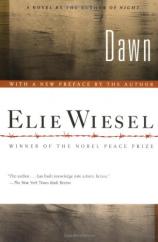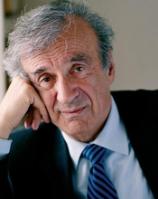Reading Group Guide
Discussion Questions
Dawn

1. What contemporary insights does Elie Wiesel's preface yield? How was your reading affected by this nonfiction commentary preceding a novel?
2. In a lecture delivered as he accepted the Nobel Peace Prize in 1986, Wiesel reiterated his belief that while it is crucial to remember the past, a "holy war" is a contradiction in terms. What does DAWN reveal about the makings of a "holy warrior"? Could Elisha's dream for Israel have been realized without war? Discuss your reactions to Elisha's recruitment, in which Gad promises to turn his future into "an outcry first of despair and then of hope. And finally a shout of triumph."
3. Early in the novel, Elisha recalls his childhood encounter with a beggar, whom he meets in a synagogue. What does the beggar's advice about distinguishing night from day indicate about the nature of dawn? How does this advice influence Elisha as he looks into the faces of his fellow human beings throughout DAWN?
4. Do you agree with Ilana's assertion in her Voice of Freedom broadcast that she and her fellow fighters are not murderers, but that the Cabinet ministers are? How does Elisha view God's commandment not to kill?
5. How were you affected by the narrator's recollections of Catherine from his days in Paris? What does this scene tell us about his experience with love, and its inability to restore his former life with his family?
6. Does the memory of Elisha's parents weigh on his conscience? Does it spur his admiration for the freedom fighters, or does it make him feel shame? Had they survived the Holocaust, would his parents have shared his passion for Zionism?
7. Characterize the Old Man's influence over the other characters in the novel. What is the source of his power? Is he wise?
8. Discuss the scene in which Elisha's fellow soldiers recall the various ways in which they escaped a brush with death. How do they view death and fate? How do they view their ability to save a life?
9. Like Elisha, the reader does not meet John Dawson until the end of the novel. Were you surprised by his personality? Did he meet Elisha's expectations? What is the nature of their conversation? Why might Dawson think he could persuade Elisha to spare his life?
10. What motivates Elisha to go through with killing Dawson? Were you surprised to see him do it at precisely the moment Dawson uttered his name? Does Elisha seem to achieve his intended result?
11. Inhabited by ghosts, with a timeline in which memories are always present, is DAWN a surrealistic novel? Or is it a quite realistic portrait of a Holocaust survivor?
12. As in NIGHT, Wiesel concludes DAWN with an image of the narrator seeing his own face. How does Elisha's image of himself compare to Eliezer's image of himself after being freed from the Nazis?
Dawn
- Publication Date: March 21, 2006
- Genres: Fiction
- Paperback: 81 pages
- Publisher: Hill and Wang
- ISBN-10: 0809037726
- ISBN-13: 9780809037728








